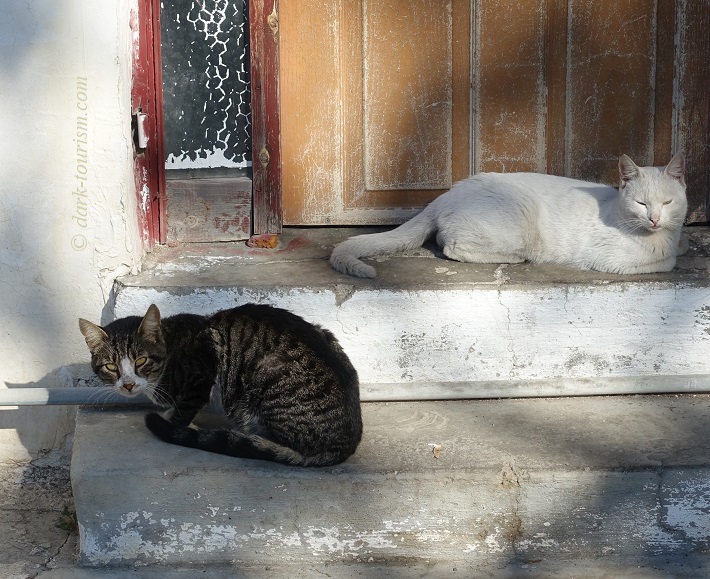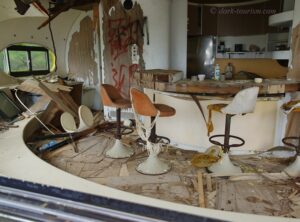After the past few more topical posts here comes a current-affairs one once again. Just a shorty, though, as I have to carry on preparing for my upcoming Iceland trip (see previous Blog post!).
For one thing Cyprus, where I went in January this year (see especially this older Blog post), has been in the news again last week, repeatedly in fact, in close succession and for very different reasons. The most important one from our perspective of DT is this first one:
Apparently there are moves to enter into negotiations to end the division of the island, which has been in place for 50 years since Turkey invaded the northern, predominantly Turkish-speaking part as a reaction to ultranationalists seeking to “reunite” Cyprus with Greece, with the support of the then military junta in Athens. After the northern third of the island was occupied, UN peacekeeping troops were called in and they set up a line of separation that became known as the Green Line. This led to the capital Nicosia remaining the last divided capital in the world (after the Berlin Wall “fell” and Berlin was reunified in 1989/90). There have been attempts to end this division before and all so far have failed. Let’s see what this new initiative will bring – for more see this article (external link, opens in a new tab). The photo above, by the way, was taken at the Green Line in Nicosia when I was there in January this year.
On the one hand, it would of course be wonderful for Cypriots if this brutal dividing line running through their country could be overcome. Although from a dark-tourism perspective this would naturally be a loss! The Green Line is a unique dark-tourism attraction. If it really does get dismantled, I hope they at least set up some kind of memorial, maybe even keep one or two of those iconic barriers involving sand-filled ex-oil drums to serve as a memorial monument. But first these negotiations have to lead somewhere, of course. All too often in the past such efforts ultimately achieved nothing.
Another thing that got Cyprus in the headlines is a totally unrelated matter and has to do with the island’s huge number of stray cats! Apparently its cat population is currently being ravaged by a new kind of coronavirus – not the sort that affects humans (yet), but still cause for concern. For more see here (external link; opens in a new tab). The photo above shows two of the countless stray cats I encountered when I was in Nicosia in January (I couldn’t resist the chance to use a feline pic in a DT post!).
An then there is the case of an expat British man who was in a Cypriot court accused of murdering his terminally ill wife. It’s one of these tragic complicated cases, similar to assisted suicide. Apparently the wife, who was in the later stages of blood cancer and in tremendous pain, begged her husband to end her suffering. And eventually he complied. Now the court has found him not guilty of murder, so he will instead face charges of manslaughter, which opens the possibility of a suspended sentence (see here for more – another external link opening in a new tab).
And on to another part of the world, and a truly dark one currently, and over the past two to three years: Ethiopia. The plight of the northern province of Tigray has featured on this Blog repeatedly (see e.g. this older post). The bloody civil war there may nominally be over by now, yet the population continues to suffer from extreme shortages and hunger. Moreover, it looks like there won’t be any proper holding to account those who committed all those serious war crimes and crimes against humanity during this war (see this article for more details – yet another external link, opens in a new tab too).
It seems like Ethiopia is suffering from the same sort of indifference in the developed world that Rwanda was back in 1994. Back then it was the wars raging in the Balkans in the wake of the break-up of Yugoslavia that held all the attention in Europe and the West in general, while the slaughter of the Rwandan genocide proceeded unhindered as the international community looked on. Now it’s of course the war in Ukraine that all eyes are focused on. Again, it’s a bit like “who cares about Africans when you have a war in Europe going on”. In a way that is understandable, naturally. A war on one’s own doorstep has to attract more attention. Yet there seems to be a sad pattern with regard to Africa that appears to be repeating itself right now…




